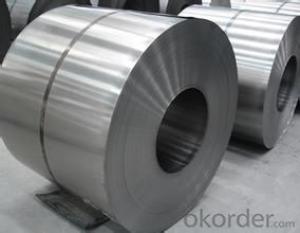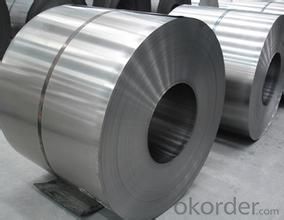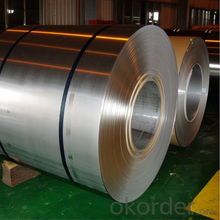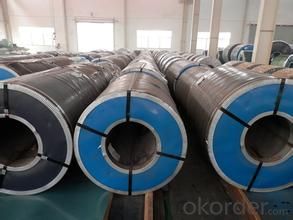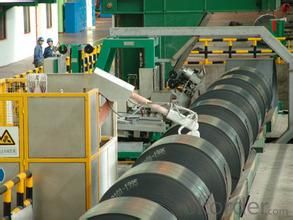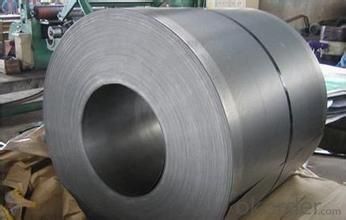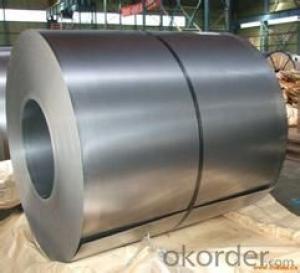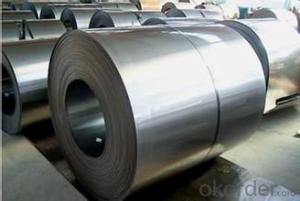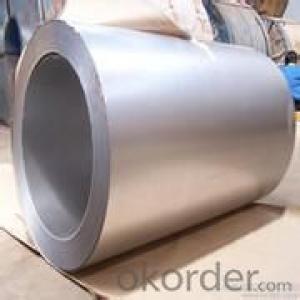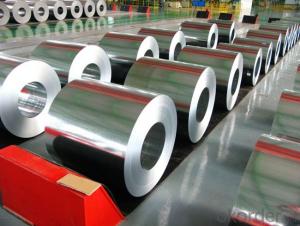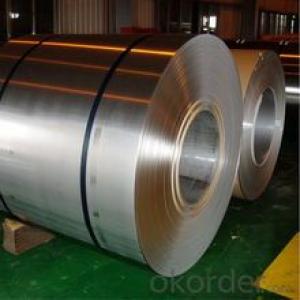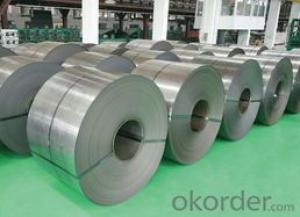cold rolled steel - SPCC in Good Quality
- Loading Port:
- Tianjin
- Payment Terms:
- TT OR LC
- Min Order Qty:
- 20 m.t.
- Supply Capability:
- 5000000 m.t./month
OKorder Service Pledge
OKorder Financial Service
You Might Also Like
Specification
The raw material of cold rolled steel coil/sheet is high quality hot rolled product, and after pickling, kinds of new technology and new process of global cold rolling production have been applied. Therefore the manufacturing, home appliance, automobile etc.
COLD ROLLED STEEL | |
THICKNESS | 0.3-0.5MM |
WIDTH | 600-1250MM |
SHEET LENGTH | 0-6000MM |
COIL ID | 508MM OR 610MM |
SURFACE TREATMENT | MATT FINISH/BRIGHT FINISH, OILED/DRY |
ANNEALING METHODS | BRIGHT ANNEAL/BLACK ANNEAL |
Package & Delivery
Package details: Standardseaworthy packing for international delivery.
Delivery: According to theexact quantity of your order.
Quality of the goods could be guaranteed. The finished product has a variety of excellent capabilities, such as continuous rolling, degreasing, annealing, skin pass, slitting and cut to length line etc. Along with it many rocessing capability and smooth, flat surface. It’s widely used in outdoor and interior decoration, furnishing
W
- Q: Iron too heavy for Ulysses but if there was any iron used id imagine it was steel. Can steel go deeper into sun than iron? Compare two bolts.. 1steel 1iron..is there a difference to what the steel can do?
- Steel is usually stronger than iron. But steel is, by definition, an alloy of iron and one or more other materials. There are thousands of different steel alloys. Be more specific.
- Q: How are steel coils used in the production of roofing systems?
- Steel coils are used in the production of roofing systems as they are formed into sheets or panels that are then shaped, cut, and fastened to create durable and weather-resistant roofs. The coils provide the raw material for manufacturing various components of the roofing system, such as metal tiles, standing seam panels, or corrugated sheets, which offer excellent strength, longevity, and protection against harsh elements.
- Q: Me and my cousin have been arguing about this. I said that superman is made out of steel, but he says that people just call him the man of steel because he's hard like steel. Does he have steel in his body?
- no hes just called man of steel because hes not easy to hurt or kill so as hard as steel
- Q: How are steel coils used in the production of agricultural implements?
- Steel coils are used in the production of agricultural implements by being transformed into various components such as blades, plows, and harrows. These components are then incorporated into the implements, enabling them to till the soil, plant seeds, and perform other tasks necessary for agricultural operations.
- Q: Is steel easier to weld?Which is more brittle/less flexible?
- Note: the easiest way to join steel to aluminum is to drill holes and BOLT them together...... You cannot WELD steel to aluminum.(except using extreme methods like explosion welding......) For all intents and purposes they are dissimilar metals, meaning they will not bond to each other. Also, aluminum has a much lower melting point than steel. It is possible to join steel and aluminum by *Soldering,* using tin/zinc hard solder. This requires a special flux designed exclusively for soldering aluminum though. The heating process is also a bit delicate as you must avoid overheating the joint. I work as a welder and I've only soldered Al three or four times. Steel is easiest to weld by far. If you set the equipment correctly, a six year-old kid can make a good weld on steel. Aluminum requires special equipment and procedures to weld. It's not easy. The brittleness of aluminum depends on it's alloy content. Most of the aluminum that's used today is not pure, rather it's in the form of aluminum ALLOYS which contain either zinc, magnesium, silicon, or manganese. these elements increase the strength dramatically, but also make it much less ductile. Commercially pure (CP) aluminum is very ductile, but it's also rather weak. Pure aluminum is used to make aluminum foil, as it's so soft and ductile it can easily be rolled paper-thin. The best aluminum alloys can come near in strength to mild steel, but weigh less than half as much as steel. Note that steel itself is an alloy of iron and carbon, Carbon increases the strength of iron in the same way that zinc or magnesium increase aluminum's strength. Most of the commonly used aluminum alloys are somewhat more brittle than mild steel, but not greatly so.
- Q: How are steel coils used in the manufacturing of automotive springs?
- Steel coils are used in the manufacturing of automotive springs as they provide the necessary strength and flexibility required for suspension systems. These coils are shaped, heated, and tempered to achieve the desired spring rate and durability, ensuring a smooth and controlled ride for vehicles.
- Q: What's the difference between hot rolled coil and hot-rolled carbon thin steel coil?
- The difference between hot rolled primary and hot-rolled carbon thin steel coils is that they include carbon steel rolls and low alloy steel coils.
- Q: What is the process of galvanizing steel coils?
- The process of galvanizing steel coils involves several steps to enhance their durability and protect them from corrosion. Firstly, the steel coils are cleaned thoroughly to remove any dirt, oil, or other impurities that may be present on the surface. This is done through an acid pickling process, where the coils are immersed in a bath of diluted acid solution or treated with a chemical cleaner. This step ensures that the surface of the coils is free from any contaminants, allowing for better adhesion of the zinc coating. After the cleaning process, the coils are rinsed to remove any remaining acid or cleaner. This is crucial to prevent any adverse reactions with the next step of the process. The next step is the actual galvanization, where the cleaned coils are dipped into a bath of molten zinc. The coils are carefully passed through the zinc bath using rollers or other mechanisms to ensure that the entire surface is coated evenly. The zinc bath is maintained at a specific temperature, typically around 450°C (842°F), which allows the molten zinc to bond with the steel surface. As the coils are withdrawn from the zinc bath, excess zinc is removed by passing them through air knives or by centrifugal spinning. This helps to control the thickness of the zinc coating and ensure a uniform appearance. Once the galvanization process is complete, the steel coils are cooled down gradually to room temperature. This allows the zinc coating to solidify and bond firmly with the steel surface, creating a protective barrier against corrosion. The final step in the process is inspection and quality control. The galvanized steel coils are inspected for any defects, such as uneven coating or areas with insufficient zinc coverage. This is usually done visually or through specialized equipment that can detect any anomalies. Additionally, the coating thickness is measured to ensure it meets the required specifications. Overall, the process of galvanizing steel coils is designed to enhance their longevity and protect them from rust and corrosion. By applying a layer of zinc coating to the steel surface, the coils become more resistant to environmental factors, making them suitable for a wide range of applications in various industries.
- Q: Which movie is better and why?I say Man of Steel!
- Captain America: The First Avenger
- Q: can steel boil and turn into a gaseous state?? if so how hot does it have to be for it to boil
- hahah umm ya u could boil steel but prob not at your house hahah and the boiling point of a medium carbon steel to be around 3000K
Send your message to us
cold rolled steel - SPCC in Good Quality
- Loading Port:
- Tianjin
- Payment Terms:
- TT OR LC
- Min Order Qty:
- 20 m.t.
- Supply Capability:
- 5000000 m.t./month
OKorder Service Pledge
OKorder Financial Service
Similar products
Hot products
Hot Searches
Related keywords
